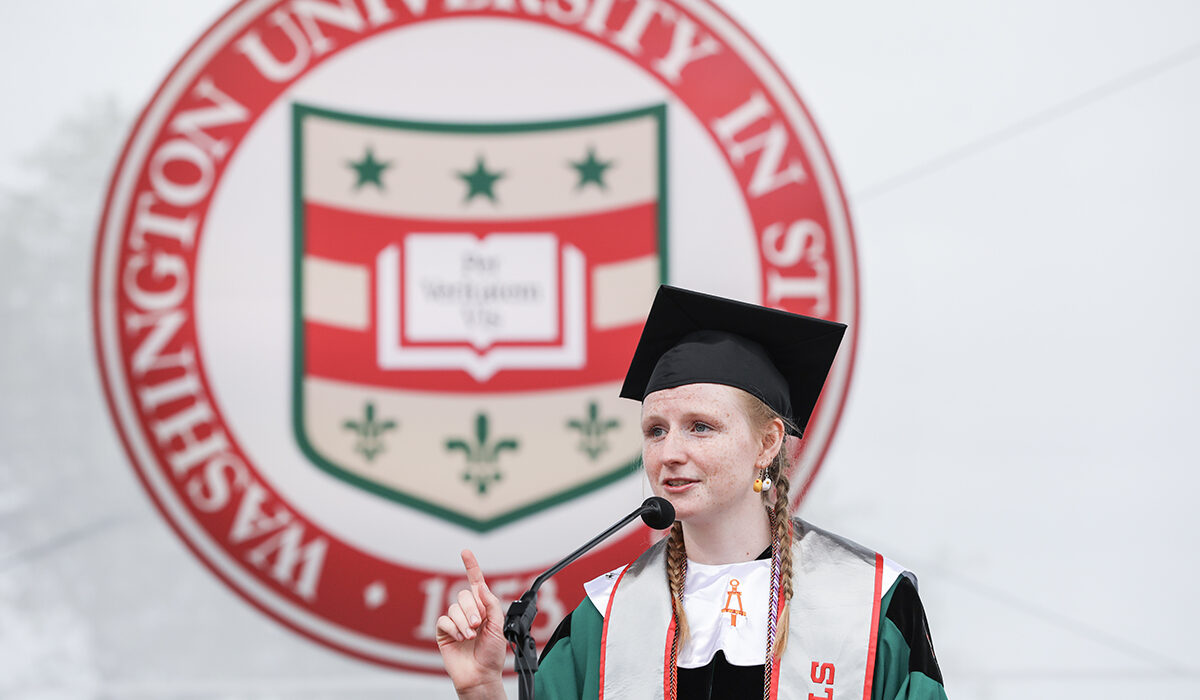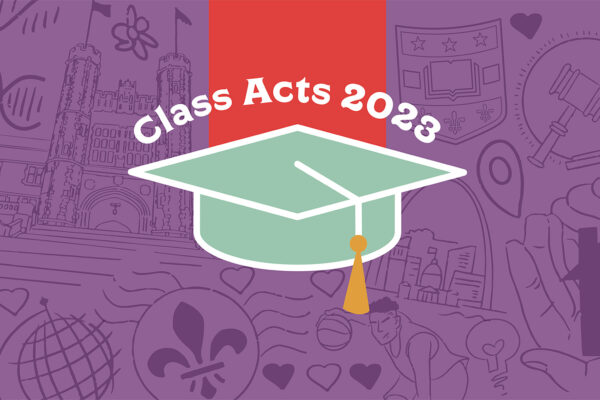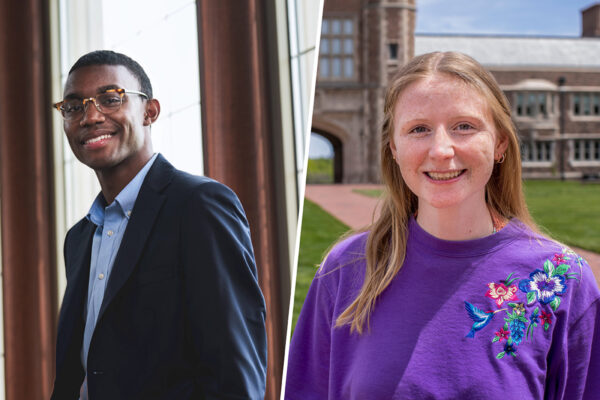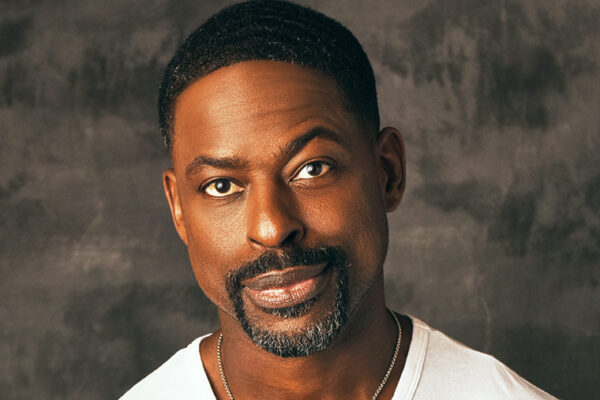Undergraduate student speaker Samm Kaiser, who earned a degree in computer science and math from the McKelvey School of Engineering and in environmental analysis from Arts & Sciences, delivered her message to the Class of 2023 at Washington University in St. Louis during the Monday, May 15, Commencement ceremony on Francis Olympic Field.
Below are Kaiser’s prepared remarks to the graduates.
Hello everyone! I’m Samm. Thank you for the opportunity to speak today. I’ve wanted to do this ever since I delivered the ‘commencement address’ at my eighth grade graduation. Though, admittedly, I’m not gonna top that — 13-year-old me killed that speech. But I still hope she’d be proud of all of us today. I know I am.
I’ve thought long and hard about what I want to say, what single message I can boil our time here down into. Because there were so many options; we’ve collectively taken tens of thousands of classes, competed in hundreds of sporting events, made countless friends and learned seemingly infinite things. With all this variety, I decided to talk about everyone’s absolute favorite thing: quantum physics!
OK, I’ve probably just lost about 80% of you. But I promise I won’t get too technical. Bear with me.
In the spring of 2022, I enrolled in an upper-level computer science class called ‘Introduction to Quantum Computing.’ Quantum computing challenged many of the notions I held about computers, from the basic units of encoded data to the programming implications of theoretical physics. Yet surprisingly, my biggest takeaway from this class had nothing to do with computers, and everything to do with me.
Consider quantum superposition. This concept explains how if a physical system has multiple possible configurations, then the best way to represent it is with a mathematical combination of all these possibilities. To understand the system, we must allow all the possibilities to exist at once, or else we lose part of the picture. In fact, many contradictory things often must be true at once, or the entire system collapses.
Understanding the necessity of contradiction changed my perspective on so many things, from subatomic particles to everyday life. For example, I’ve encountered many contradictions in my climate change activism. On the one hand, climate change is a devastating issue, an international tragedy, already responsible for claiming the lives and livelihoods of millions of people. Climate change fills me with soul-crushing anxiety and existential dread and it often feels like the hard work my peers and I are putting in to mitigate it isn’t enough.
At the same time, climate activism has brought me my closest friends. Here at WashU, I found a home in the environmental studies department, a place where I feel the professors deeply care about me and I’m constantly inspired by my fellow students. Through my work with the Office of Sustainability and Tyson Research Center, I’ve made dozens of professional connections that grew into friendships. A deeply rooted societal and ecological problem brought us all together, but from that toil came love and strength. Relationships like these inspire me to keep working for climate justice more than any doom and gloom outlook ever will. Climate change has brought me my greatest fears and my greatest joys. To erase the fear is ignorant and dangerous, but to erase the joy is to take away our greatest weapon in the fight. We need both. We need the quantum superposition.
To speak to something we all shared, consider the contradictory mess that was COVID-19. When the pandemic sent us home in March of 2020, no one knew how long it would last or what would happen next. We had to attend lab classes on Zoom, keep up our social lives via watered-down virtual events and navigate all our relationships differently in this new world. An unjust number of people died and countless more endured physical and mental health crises. It was a great suffering.
At the same time, COVID-19 gave many of us a reason to slow down. To re-evaluate our lives. To start new ventures and work through bad habits. To live through a significant piece of history and reimagine how we could take the sourest lemon that life had to offer, and turn it into something resembling lemonade. The activism, the relationships and the wisdom that the pandemic left in its wake are beautiful and inspiring. This is not despite an international tragedy, but because of it. To erase the suffering of the pandemic or to ignore the positive change brought along because of it, is to lose part of the picture. We need both. We need superposition.
Graduation speeches often have advice. But you are all incredibly impressive people — what could I tell you that you don’t already know? I’ve watched you win the battle with organic chemistry, dunk on other schools in our athletic conference and lift each other up to advocate for a better WashU. Y’all are amazing. But I don’t need to tell you that.
So, I’m instead going to share what I wish I knew in eighth grade. Now, as we move into the real world, ready to put our hard work to the test, I implore you: Slack off sometimes. Be lazy. Take time to enjoy life for what it is, without trying to change it. Because the more we enjoy our world, the harder we will work to save it.
Achieving the future we want, a future of climate harmony, of global equality, of maximized human joy, will be an uphill battle. The more fun we have blowing off work with our friends, napping in the sunshine and laughing over dinner, the more inspired and energized we will be to fight for justice, for equality, for everyone’s right to enjoy life. The more we love the journey, the more quickly we will arrive.
So work hard, but take the time to enjoy the world that you are creating. Be lazy to save the world. It’s a contradiction that we must remember. It’s a superposition that we must embrace.
So, Class of 2023. Go forth! And slack off. I promise I’ll be doing it with you. Thank you.



